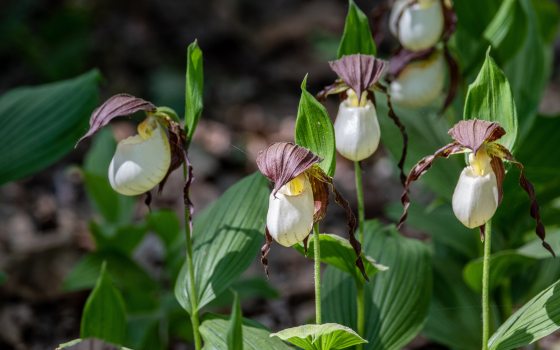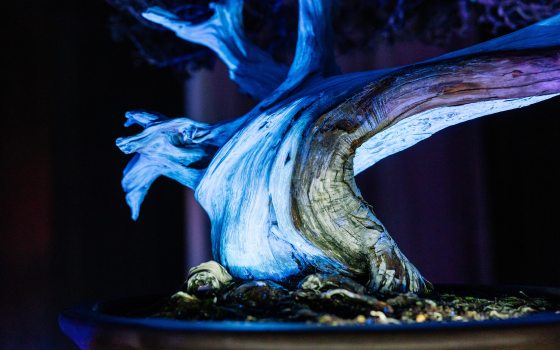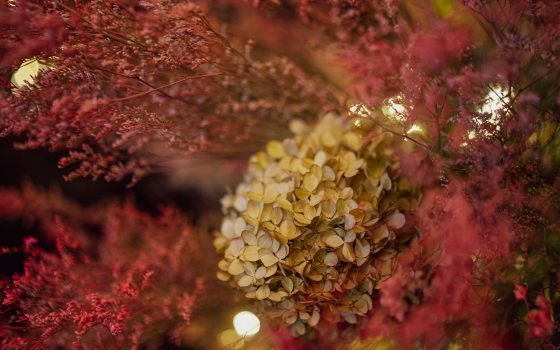Every plant tells a story of origin, resilience, and cultural connection. But some plant stories begin unethically. The illegal plant trade, which devastates wild populations, accelerates biodiversity loss, and endangers plants and those who rely on them, is a growing threat to plant species all over the world. And many of those making purchases that fuel the illegal plant trade don’t even realize it. In response, Longwood Gardens has joined the newly launched Illegal Plant Trade Coalition, a global alliance led by Botanic Gardens Conservation International, which unites gardens, scientists, conservation organizations, and enforcement agencies to reduce demand, support legal trade, and protect threatened plants. You can be a part of the solution, too.
At Longwood, science is a call to action. It drives our responsibility not only to steward our own landscapes, but also to confront global threats that endanger plants—and the people and wildlife who rely on them. Illegal plant trade is one such threat.
Each year, plants—such as cacti, succulents, orchids, cycads, or carnivorous plants—are trafficked at a significantly higher volume than animals, often without buyers realizing their purchases fuel habitat destruction and extinction. Online platforms, particularly marketplaces and social media, play a large role in expanding this trade, making rare plants more accessible and connecting sellers with buyers across the globe. The illegal trading of plants drives biodiversity loss, weakens ecosystems, and undermines the cultural and economic foundations of many communities all over the world.
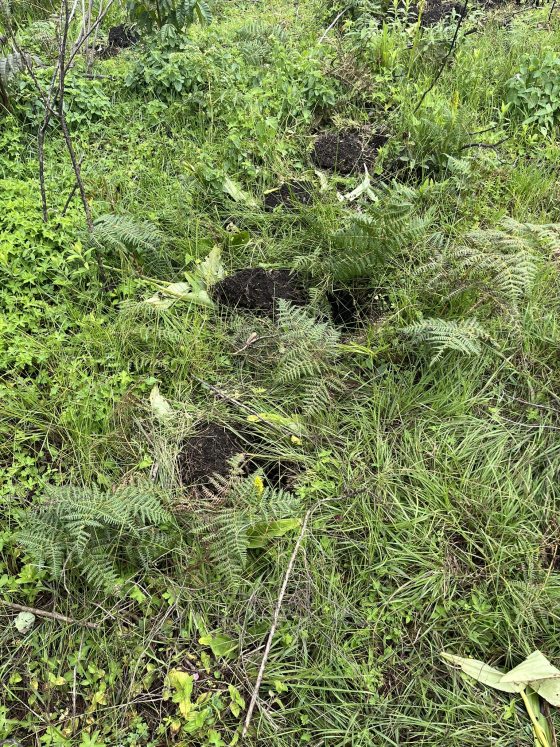
Plant theft pushes sought-after plants to extinction or close to the brink. Pictured here is evidence of orchid poaching in Tanzania. Photo provided by Peter Zale.
As stewards of a living collection representing more than 14,000 taxa, we are deeply aware of the toll the illegal plant trade takes on ecosystems and species survival. Every plant in our care reflects the horticultural knowledge and shared responsibility to steward biodiversity ethically. Through thoughtful propagation, exchange, and display, we aim to celebrate plants in ways that honor their origins and safeguard their future—ensuring that the beauty and diversity of the world’s flora continue to inspire, educate, and endure.
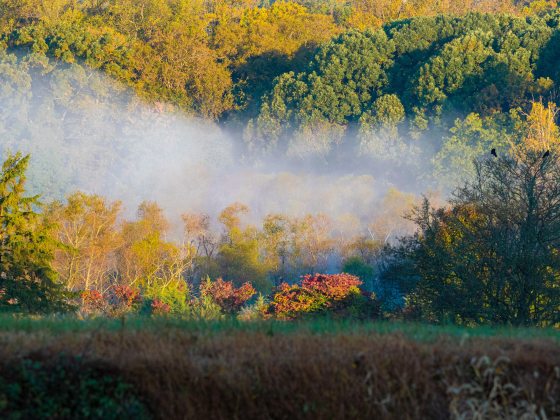
Each year, more than 1.7 million people experience Longwood’s public areas and landscapes as guests, while other areas are carefully managed for research, restoration, and the protection of biodiversity. This balance of beauty and stewardship reflects our belief that every garden can be both a place of inspiration and a force for conservation. Photo by William Hill.
Combating the illegal trade of plants requires a multi-pronged effort from a wide range of strategic partners—thus, we have joined BGCI’s Illegal Plant Trade Coalition, launched on October 9 at the International Union for Conservation of Nature (IUCN) World Conservation Congress in Abu Dhabi, United Arab Emirates.
The coalition is a steering committee comprised of botanical gardens, zoos, conservation groups, and more. Public gardens around the world serve as an unparalleled platform to raise awareness and inspire action in the face of illegal plant trade … and as a new member of the IPTC, Longwood is proud to contribute its expertise to these collective efforts.
“Joining this coalition strengthens Longwood Gardens’ global commitment to protecting plants and ecosystems, as well as the communities that depend on them,” says Longwood Associate Vice President of Science Kate Santos. “Through ethical sourcing and by leveraging our expertise in propagating and cultivating rare and endangered plants, we join with others to ensure that the beauty of biodiversity continues into the future.”

“This effort is a meaningful milestone for Longwood and reflects the important role we share in global plant conservation,” says Santos. Photo by Carlos Alejandro.
Longwood’s conservation work takes us around the world. Through global plant exploration, Longwood scientists join with partners worldwide to document, research, and protect species facing mounting pressures—such as those from climate change, habitat loss, and the illegal plant trade. Exploration is not only about discovery—it is a commitment to global plant conservation and the collaborations that make it possible. From this foundation, we bring conservation to horticulture: developing propagation protocols, advancing sustainable growing practices, and building resilient living collections.
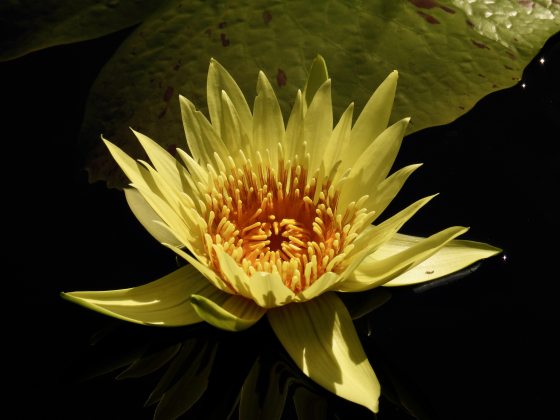
By leveraging our horticultural expertise, we help ensure that plants at risk can endure and continue to inspire for generations to come—such as the Nymphaea stuhlmannii, a waterlily that can be found in only a 20-square-mile radius in central Tanzania. It now has a home in our Waterlily Court. Photo by Candie Ward.
One powerful example of our work to combat the illegal plant trade can be found in Tanzania, a nation rich in biodiversity and home to thousands of terrestrial orchids. These remarkable plants are being harvested unsustainably for chikanda, a regional delicacy whose rising popularity has created a booming black market. With an estimated 85 species now imperiled and millions of tubers exported illegally each year, the future of these orchids hangs in the balance.
In response, Longwood has joined forces with the Tanzania Plant Health and Pesticides Authority, the National Herbarium of Tanzania, and the Tanzania Sansevieria Foundation to take action. Fieldwork in the Southern Highlands, including Kitulo National Park—the only national park in Tanzania designated specifically for plants—has documented dozens of orchid populations and produced hundreds of herbarium specimens. More than 60 seed collections are now secured, and Longwood scientists are pioneering propagation research that could provide a lifeline for these species.
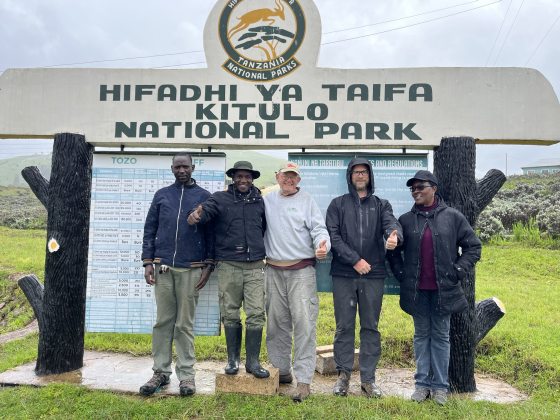
Our work in Tanzania is one example of the global collaboration needed to confront the illegal plant trade. Photo provided by Peter Zale.
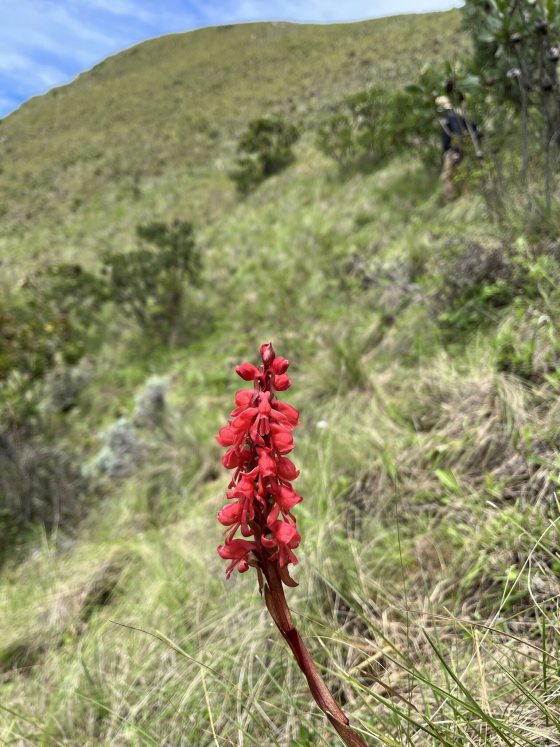
Pictured here is the vibrant Satyrium monadenum, found in the Mbeya region of Tanzania. It is often used to make chikanda. Photo by Peter Zale.
The long-term vision reaches beyond conservation alone. By developing propagation protocols that can be scaled into agricultural enterprises, we aim to create sustainable alternatives to wild harvesting—reducing pressure on fragile ecosystems while offering new opportunities for local communities. It is a vision rooted in partnership, innovation, and hope.
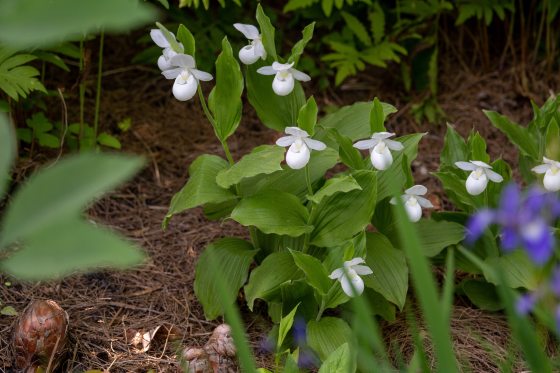
From native orchids right here in Pennsylvania to waterlilies in Tanzania, we work to collect rare plants and ensure their survival. Every orchid seed sown, every plant protected, is an act of faith in the future. Pictured here is a white-flowered Cypripedium reginae, a rare orchid native to our region, growing in Peirce’s Woods. Photo by Hank Davis.
Longwood is proud to stand alongside many organizations around the world, all bringing their unique expertise and commitment to safeguarding plants for the future. By working together—through science, horticulture, education, and advocacy—we are helping to ensure that the story of threatened plants does not end in loss, but in resilience.
Home gardeners and plant enthusiasts alike play a vital role in protecting global biodiversity and helping to curb the illegal plant trade—all by being mindful of where and how they purchase plants. Many nurseries and growers already work diligently to source and propagate responsibly, helping to safeguard species through cultivation and education. The best way to ensure your plants are ethically sourced is to look for that transparency: reputable sellers clearly label their plants, verify that they are propagated from cultivated stock, and share their sourcing practices openly. Buying from trusted nurseries, botanic garden shops, or plant societies that champion sustainable propagation supports this responsible horticultural network.
Look for sellers who can confirm that plants are grown from seed or cultivated cuttings rather than collected from the wild and be cautious of rare or unusually inexpensive listings that lack documentation or claim to be “wild collected”. By supporting ethical growers, reporting questionable listings, and sharing what you learn, gardeners can help sustain both the nursery trade and the natural ecosystems that inspire it—ensuring plants continue to thrive in the wild and in our Gardens for generations to come.
